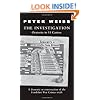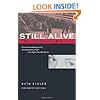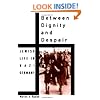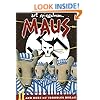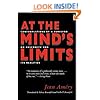
The Reader
and over one million other books are available for Amazon Kindle. Learn more


Flip to back
Flip to front

The Reader Paperback – February 26, 1999
See all 54 formats and editions
Hide other formats and editions
| Amazon Price | New from | Used from |
|
Mass Market Paperback
"Please retry"
|
—
|
$0.87 | $0.01 |
|
Audio CD, Audiobook, Unabridged
"Please retry"
|
$6.95 | $1.83 |
|
Unknown Binding
"Please retry"
|
—
|
$0.99 | $0.01 |

$12.50
FREE Shipping on orders over $35.
In Stock.
Ships from and sold by Amazon.com.
Gift-wrap available.
NO_CONTENT_IN_FEATURE
Start reading The Reader on your Kindle in under a minute.
Don't have a Kindle? Get your Kindle here, or download a FREE Kindle Reading App.
Don't have a Kindle? Get your Kindle here, or download a FREE Kindle Reading App.
More from Bernhard Schlink
Bernhard Schlink's novels are beautiful, disturbing, and often devastating tales of identity and justice. Visit Amazon's Bernhard Schlink Page.
Bernhard Schlink's novels are beautiful, disturbing, and often devastating tales of identity and justice. Visit Amazon's Bernhard Schlink Page.
Product Details
Would you like to update product info or give feedback on images?.
|
Editorial Reviews
Amazon.com Review
Oprah Book Club® Selection, February 1999: Originally published in Switzerland, and gracefully translated into English by Carol Brown Janeway, The Reader is a brief tale about sex, love, reading, and shame in postwar Germany. Michael Berg is 15 when he begins a long, obsessive affair with Hanna, an enigmatic older woman. He never learns very much about her, and when she disappears one day, he expects never to see her again. But, to his horror, he does. Hanna is a defendant in a trial related to Germany's Nazi past, and it soon becomes clear that she is guilty of an unspeakable crime. As Michael follows the trial, he struggles with an overwhelming question: What should his generation do with its knowledge of the Holocaust? "We should not believe we can comprehend the incomprehensible, we may not compare the incomparable.... Should we only fall silent in revulsion, shame, and guilt? To what purpose?"
The Reader, which won the Boston Book Review's Fisk Fiction Prize, wrestles with many more demons in its few, remarkably lucid pages. What does it mean to love those people--parents, grandparents, even lovers--who committed the worst atrocities the world has ever known? And is any atonement possible through literature? Schlink's prose is clean and pared down, stripped of unnecessary imagery, dialogue, and excess in any form. What remains is an austerely beautiful narrative of the attempt to breach the gap between Germany's pre- and postwar generations, between the guilty and the innocent, and between words and silence. --R. Ellis
From School Library Journal
YA. Michael Berg, 15, is on his way home from high school in post-World War II Germany when he becomes ill and is befriended by a woman who takes him home. When he recovers from hepatitis many weeks later, he dutifully takes the 40-year-old Hanna flowers in appreciation, and the two become lovers. The relationship, at first purely physical, deepens when Hanna takes an interest in the young man's education, insisting that he study hard and attend classes. Soon, meetings take on a more meaningful routine in which after lovemaking Michael reads aloud from the German classics. There are hints of Hanna's darker side: one inexplicable moment of violence over a minor misunderstanding, and the fact that the boy knows nothing of her life other than that she collects tickets on the streetcar. Content with their arrangement, Michael is only too willing to overlook Hanna's secrets. She leaves the city abruptly and mysteriously, and he does not see her again until, as a law student, he sits in on her case when she is being tried as a Nazi criminal. [...] The theme of good versus evil and the question of moral responsibility are eloquently presented in this spare coming-of-age story that's sure to inspire questions and passionate discussion. —Jackie Gropman, Kings Park Library, Burke, VA
Copyright 1997 Reed Business Information, Inc. --This text refers to an out of print or unavailable edition of this title.
Copyright 1997 Reed Business Information, Inc. --This text refers to an out of print or unavailable edition of this title.
More About the Authors
Discover books, learn about writers, read author blogs, and more.Customer Reviews
Most Helpful Customer Reviews
313 of 325 people found the following review helpful
By
Lawyeraau
HALL OF FAMETOP 500 REVIEWERVINE VOICE on July 5, 2004
Format: Paperback
12 Comments
Sending feedback...
Winner of the Boston Review's Fisk Fiction Prize, this thematically complex story is written in clear, simple, lucid prose. It is a straightforward telling of an encounter that was to mark fifteen year old Michael Berg for life. The book, written as if it were a memoir, is divided into three parts. The first part of the book deals with that encounter.
While on his way home from school one day in post-war Germany, Michael becomes ill. He is aided by a beautiful and buxom, thirty six year old blonde named Hanna Schmitz. When he recovers from his illness, he goes to Frau Schmitz's home to thank her and eventually finds himself seduced by her and engaged in a sexual encounter. They become lovers for a period of time, and a component of their relationship was that Michael would read aloud to her. Michael romanticizes their affair, which is a cornerstone of his young life. Then, one day, as suddenly as she appeared in his life, she disappears, having inexplicably moved with no forwarding address.
The second part of the book deals with Michael's chance encounter with Hanna again. He is now a law student in a seminar that is focused on Germany's Nazi past and the related war trials. The students are young and eager to condemn all who, after the end of the war, had tolerated the Nazis in their midst. Even Michael's parents do not escape his personal condemnation. The seminar is to be an exploration of the collective guilt of the German people, and Michael embraces the opportunity, as do others of his generation, to philosophically condemn the older generation for having sat silently by. Then, he is assigned to take notes on a trial of some camp guards.
To his total amazement, one of the accused is Hanna, his Hanna.Read more ›
While on his way home from school one day in post-war Germany, Michael becomes ill. He is aided by a beautiful and buxom, thirty six year old blonde named Hanna Schmitz. When he recovers from his illness, he goes to Frau Schmitz's home to thank her and eventually finds himself seduced by her and engaged in a sexual encounter. They become lovers for a period of time, and a component of their relationship was that Michael would read aloud to her. Michael romanticizes their affair, which is a cornerstone of his young life. Then, one day, as suddenly as she appeared in his life, she disappears, having inexplicably moved with no forwarding address.
The second part of the book deals with Michael's chance encounter with Hanna again. He is now a law student in a seminar that is focused on Germany's Nazi past and the related war trials. The students are young and eager to condemn all who, after the end of the war, had tolerated the Nazis in their midst. Even Michael's parents do not escape his personal condemnation. The seminar is to be an exploration of the collective guilt of the German people, and Michael embraces the opportunity, as do others of his generation, to philosophically condemn the older generation for having sat silently by. Then, he is assigned to take notes on a trial of some camp guards.
To his total amazement, one of the accused is Hanna, his Hanna.Read more ›
Thank you for your feedback.
If this review is inappropriate, please let us know.
Sorry, we failed to record your vote. Please try again
105 of 106 people found the following review helpful
By
Friederike Knabe
VINE VOICE on December 18, 2004
Format: Paperback
7 Comments
Sending feedback...
The topic of the Holocaust is raised almost every day in some manner. Many books have been written about the topic. Whether in studies, documentaries or fictional accounts, finger-pointing at the perpetrators of the crimes against millions has been part of the process of coming to terms with the Nazi atrocities. For Imre Kertesz, renowned author and Nobel laureate of 2002, there is no other topic. Yet, when he reflects on the traumatic impact of Auschwitz, "he dwells on the vitality and creativity of those living today" and "thus, paradoxically, not on the past but the future." Bernhard Schlink, professor of law and practicing judge in Germany, born in 1944, has attempted to capture the struggles of his generation in confronting the past and the future in "The Reader". "Pointing at the guilty party did not free us from shame", his narrator and protagonist contemplates, "but at least it overcame the suffering we went through on account of it".
The usually unambiguous distinction between villain and victim has facilitated the identification with those who lost their lives or suffered under the Nazi atrocities while all scorn, abhorrence and hate was piled on the perpetrators. Until recently, few books have focused on the after-war generation. While growing up, the children had to come to terms with the, often sudden, exposure of their parents' active or passive participation in the crimes of the Nazi regime. "The Reader", set in post-war Germany and against the backdrop of the Frankfurt Auschwitz trials of the mid-sixties, takes this new and, for our generations, important angle: in the form of the fictional memoir of Michael Berg.Read more ›
The usually unambiguous distinction between villain and victim has facilitated the identification with those who lost their lives or suffered under the Nazi atrocities while all scorn, abhorrence and hate was piled on the perpetrators. Until recently, few books have focused on the after-war generation. While growing up, the children had to come to terms with the, often sudden, exposure of their parents' active or passive participation in the crimes of the Nazi regime. "The Reader", set in post-war Germany and against the backdrop of the Frankfurt Auschwitz trials of the mid-sixties, takes this new and, for our generations, important angle: in the form of the fictional memoir of Michael Berg.Read more ›
Thank you for your feedback.
If this review is inappropriate, please let us know.
Sorry, we failed to record your vote. Please try again
61 of 66 people found the following review helpful
By
Helene Hoffman
on December 29, 1999
Format: Paperback
6 Comments
Sending feedback...
What impressed me far more about this book than the main plot (15 year old has sensuous affair with much older woman who turns out to be former SS Guard), was a seemingly minor issue in the book. That issue was that of how the sons and daughters of the Germans who lived in Germany during WWII dealt with their "Holocaust Legacy". My parents are Holocaust Survivors, and I have read a lot about the Holocaust, but little has been written on the topic of that first generation of Germans born after the end of WWII. The author articulately and clearly describes how the sons and daughters of those Germans who lived through WWII absolutely had no respect for their parents; that the sheer force of the genocide that their parents conspired in, ignored, or did whatever, demanded that their children's feelings toward them just had to plunge far deeper than the "typical" disdain which every generation of young people have toward their parents. My only wish is that the author had delved into this topic even further; as he himself was born in Germany in 1944, he is indeed a member of that postwar generation of Germans, and therefore has a unique perspective on the subject. As for the book generally, the plot was nothing short of incredible. With that said, I thought Parts I and III (the beginning and ending of the book) were very well-written; the author does a great job describing the sensuous affair of the teenager, and a great job at the end, about his conflicting feelings towards his former lover during and after her trial, and about what ultimately happens to her. However, the middle of the book was awful; it was written in a superficial manner, with no real character development. So remember: just keep reading until the end. All in all, a fascinating portrayal, from a German, of what it means for the post-war German generation to live with tremendously complex feelings concerning the Holocaust and their parents.
Thank you for your feedback.
If this review is inappropriate, please let us know.
Sorry, we failed to record your vote. Please try again
